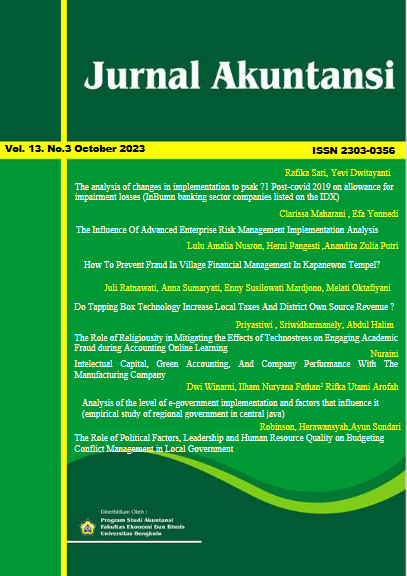Main Article Content
Abstract
The aim of this study is to examine how religion may help students overcome the effects of technostress, which heightens students' propensity for academic dishonesty during online learning. First, this study uses the self-determination theory (SDT) to describe the function of religion. We confirm that student’s technostress increases academic fraud during online learning using structural equation modelling (SEM). The study concludes that during hybrid learning, students with strong religiosity are more intrinsically motivated to prevent academic fraud than are students with low motivation. Students must be extremely motivated, confident in their cognitive flow, and convinced that using ICT won't cause them to engage in dysfunctional behavior in order to successfully adopt a virtual face-to-face application or learning management system in education. The study's last finding is that students' cognition can boost their positive emotion.
Article Details
Copyright (c) 2023 Priyastiwi Priyastiwi, Sriwidharmanely Sriwidharmanely, Abdul Halim

This work is licensed under a Creative Commons Attribution-ShareAlike 4.0 International License.
Author retains the copyright and grants the journal the right of first publication of the work simultaneously licensed under the Creative Commons Attribution-ShareAlike 4.0 License that allows others to share the work with an acknowledgement of the work's authorship and initial publication in this journal
Author is able to enter into separate, additional contractual arrangements for the non-exclusive distribution of the journal's published version of the work (e.g., post it to an institutional repository or publish it in a book) with the acknowledgement of its initial publication in this journal.
Author is permitted and encouraged to post his/her work online (e.g., in institutional repositories or on their website) prior to and during the submission process, as it can lead to productive exchanges, as well as earlier and greater citation of the published work (See The Effect of Open Access).
Creative Commons Attribution-ShareAlike (CC BY-SA)
Jurnal Akuntansi is licensed under a Creative Commons Attribution-ShareAlike 4.0 International License.

